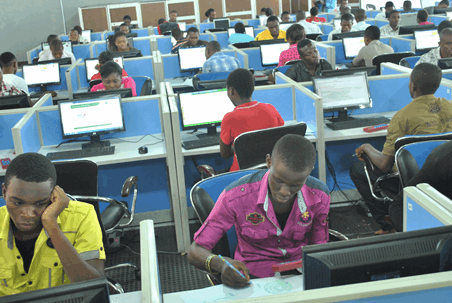The Special Committee on Examination Infractions set up by the Joint Admissions and Matriculation Board (JAMB) has uncovered more than 6,000 cases of technology-enabled examination malpractice during the 2025 Unified Tertiary Matriculation Examination (UTME).
Chairman of the committee, Dr. Jake Epelle, disclosed the findings while presenting the committee’s report at a press briefing in Abuja on Monday.
Epelle described the fraud as “a highly organised, technology-driven, and culturally normalised enterprise,” warning that the credibility of Nigeria’s tertiary examination system is under serious threat.
According to Epelle, the panel documented 4,251 cases of ‘finger blending’, a biometric manipulation technique used to bypass identity checks, and 190 cases of AI-assisted image morphing, used to impersonate legitimate candidates.
Epelle added that 1,878 candidates falsely declared themselves as persons with albinism—an attempt to exploit special accommodation protocols for candidates with disabilities.
“We documented 4,251 cases of ‘finger blending’, 190 cases of AI-assisted image morphing, 1,878 false declarations of albinism, and numerous cases of credential forgery, multiple NIN registrations, and solicitation schemes,” Epelle stated.
“This fraud is not the work of candidates alone—it is sustained by syndicates involving some CBT centres, schools, parents, tutorial operators, and even technical accomplices.”
The committee warned that existing laws are insufficient to tackle the new forms of digital and biometric fraud undermining the exam process.
It expressed concern that public confidence in JAMB and the integrity of the UTME is already eroding.
The committee then in its recommendations urged JAMB to “deploy AI-powered biometric anomaly detection, dual verification systems, real-time monitoring, and a National Examination Security Operations Centre.”
The committee also urged JAMB to cancel the results of confirmed fraudulent candidates, impose bans of one to three years, and prosecute both candidates and their collaborators.
It also recommended that a Central Sanctions Registry, accessible to universities and employers.

